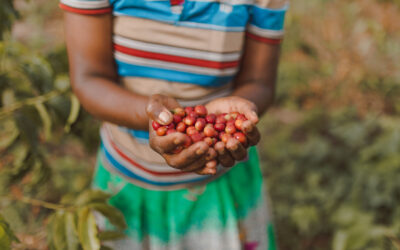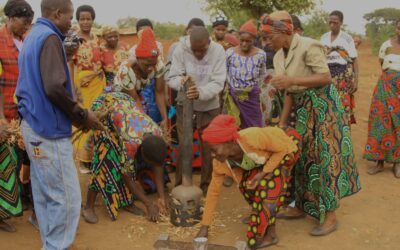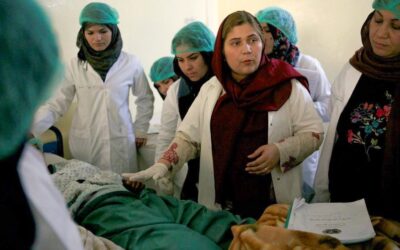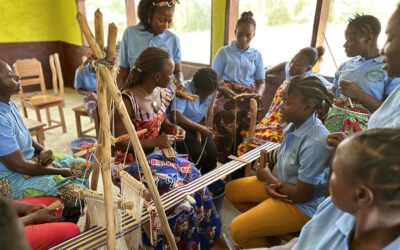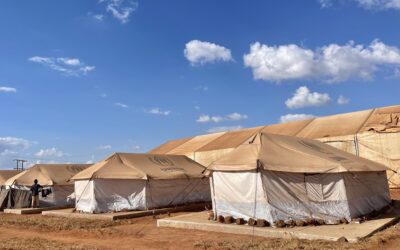3 Simple Actions to Break the Cycle of Poverty
I’m sure you’ve stumbled upon a picture of someone (most likely in Africa) malnourished in ragged clothes, a viral photo of a refugee, or a child killed by war. It is a particular kind of representation of poverty.
“Poverty porn” is a term used to describe these photos that exploit an individual’s real-life experience in order to evoke an emotional response from the viewer. It is meant to get clicks, motivating you by guilt. In an effort to compel you to donate, the underlying message often becomes that you are the savior of people living in poverty.
You may have felt guilty for not giving or may have shed a few tears for not being able to help those pictured in such “poverty porn,” which would be an understandable response. The photos and stories often highlight desperate and severe situations. You maybe started to pray. But where do we go from there? How do we
Giving out of guilt or an impulse to jump in and save the day is not dignifying for generous donors or the people impacted by your generosity. We all have the goal to end the cycle of poverty, and we all have hope in achieving a better world. The challenge is to acknowledge our role in the cycle of poverty and to learn from it. If you live in a wealthy country, you hold privilege, and there is an inherent power dynamic in the ways in which you engage poverty. This is why we believe it is important to engage the cycle of poverty with thoughtfulness, intentionality, and by the guidance of local, indigenous leaders who know the needs of their community best.
What is the cycle of poverty?
I’m sure poverty is not a new term for you, but what does it really mean? Poverty is the lack of financial resources, capabilities, and/or social services to live. Instead of thriving, people living in poverty are just surviving, often on less than $1.90 a day. Many times people don’t have the social services that in the U.S. we take for granted, such as education, clean water, and health care. ODW names these services as 11 issue areas to address around the world–all of which are interconnected. For example, if you are constantly exposed to water-borne diseases, it may be hard to regularly do work and make an income because of diarrhea and malnutrition. Without a reliable income, you cannot pay for the healthcare you need to be well, or for your children’s school fees. Without access to education, your children may not have opportunities to break out of their own cycle of poverty.
Steps you can take to learn more about poverty:
After reading this far, you may be thinking, “Okay, but how do we begin to change this?” Or, “What can I do?” Here are some simple tips to think about today, the International Day for the Eradication of Poverty, and every day.
First, find an organization you believe in because of its mission. We acknowledge it may not be One Day’s Wages, and that’s okay. We hope to be a community of truly motivated people to power our grassroots organization.
Second, see how the organization promotes its projects on social media, in newsletters, and during events. Do they feature stories, photos, and videos of people thriving? We want to lift up those we serve and empower those who work locally. We don’t want to take advantage of people’s stories. Put yourself in their shoes: if you saw an image of yourself in the same circumstances online, would it make you feel good?
Third, challenge yourself to learn about the national context of projects you want to support. There’s a cool project in Uganda you want to support? Take a look at what causes those systemic issues of poverty by learning about the history of the country and region. Many areas of the world often experience droughts, intensified by climate change, and have been plagued by colonization, civil wars, and conflict. There are lots of great resources online, some of which our grant vetting team uses to thoughtfully and thoroughly vet potential partnerships around the world. The World Bank, for example, offers a brief country overview for many of the countries in which they work.
By doing your due diligence, we can make the world more peaceful and just, and provide opportunities to others who may not hold as much privilege as ourselves. Tears and prayers are important–it shows empathy, and that we care. That’s a good place to start. But the real change comes through actions and willingness to stand up to injustices that perpetuate the cycle of extreme poverty. Will you join us?
More stories of impact
When Generosity Sounds Like a Song: An Invitation to Create Together
At One Day’s Wages, we are endlessly inspired by what happens when people bring their full selves—their creativity, curiosity, and courage—into a shared mission. Our work to alleviate extreme poverty has always been built on partnership. Not just with grassroots...
Ways to Give: Simple, Meaningful Options That Fit Your Life
Generosity isn’t one-size-fits-all. At One Day’s Wages, we believe giving should feel accessible, thoughtful, and aligned with your real life—whether you’re just starting out, raising a family, building a business, or planning your legacy. Here are several ways our...
Starting With Strengths: How Asset-Based Development Can Transform Communities
When people talk about community development, the conversation often begins by listing what’s missing: clean water, farming knowledge, health clinics, and more. And while understanding needs is important, defining communities by their needs can paint them as passive,...
One Day’s Wages Named Together Women Rise 2026 Featured Grantee for Maternal Health Work in Afghanistan
One Day’s Wages (ODW) is honored to announce its selection as the 2026 Featured Grantee of Together Women Rise, a powerful global community of women and allies committed to advancing gender equality. This prestigious award includes a $50,000 grant over two years...
Women at Work: Toward Inclusion in the Global Workforce
Can you remember the last time you couldn’t make it to work? Maybe your nanny canceled, and you were left without childcare. Or maybe your car battery died, and you didn’t have a safe way to get to the office. These are the kinds of barriers that women around the...
Standing in Solidarity When the World Turns Away
We cannot fix every broken system. But we can choose to stand in solidarity with those who cross our path. This choice, this posture of care and action, is what fuels us at One Day’s Wages. And it’s why we need each other, now more than ever. Recently, our Global...
LEARN
Leadership
Transparency
Read the Latest
Contact Us
COLLABORATE
Faith Groups
Schools
Businesses
Get Involved
One Day’s Wages exists to alleviate extreme poverty by investing in, amplifying, and coming alongside locally led organizations in underserved communities.
©2026 One Day's Wages is a registered 501(c)(3) organization | Tax ID #26-2566653 | Privacy policy | Terms of use
P.O. BOX 17575 Seattle, WA 98127 | Contact us


